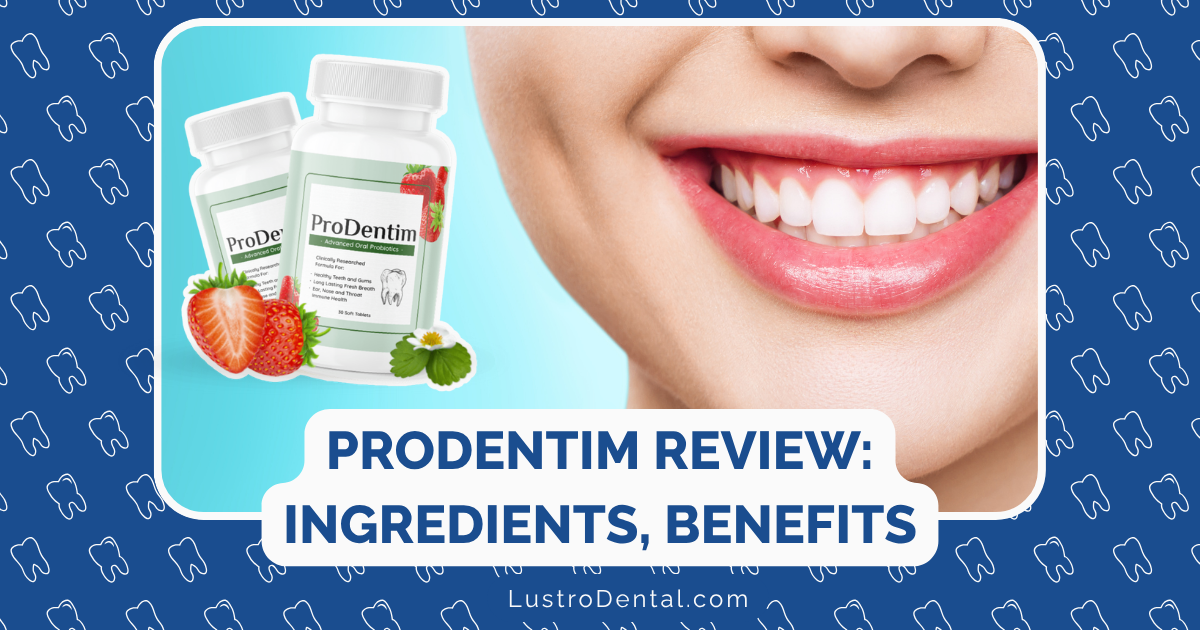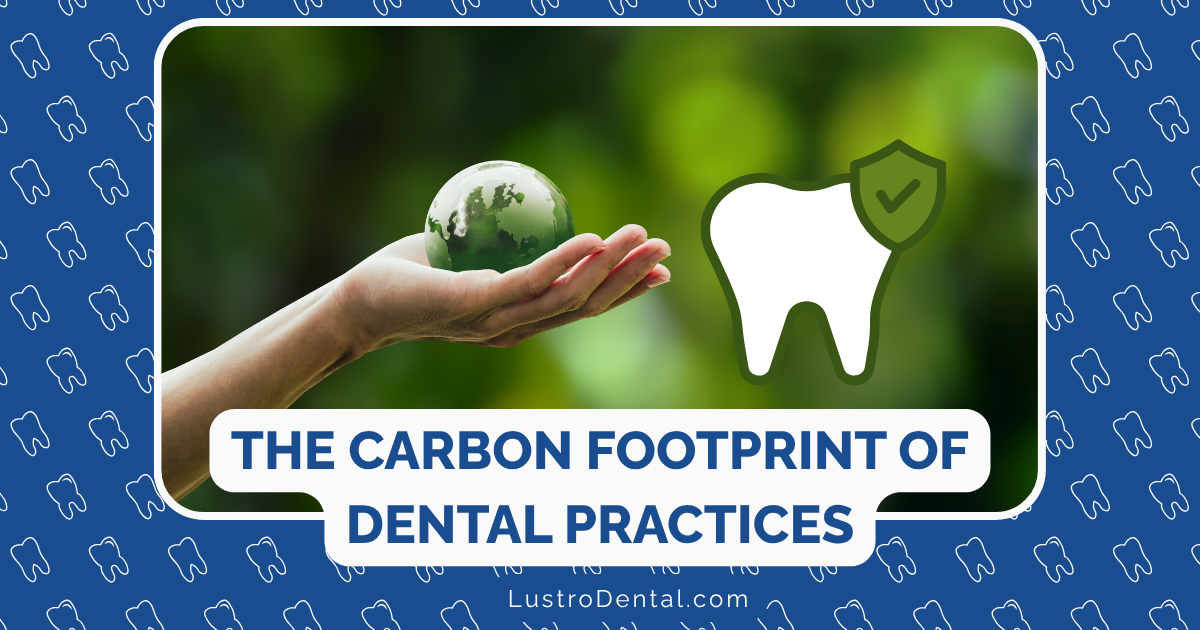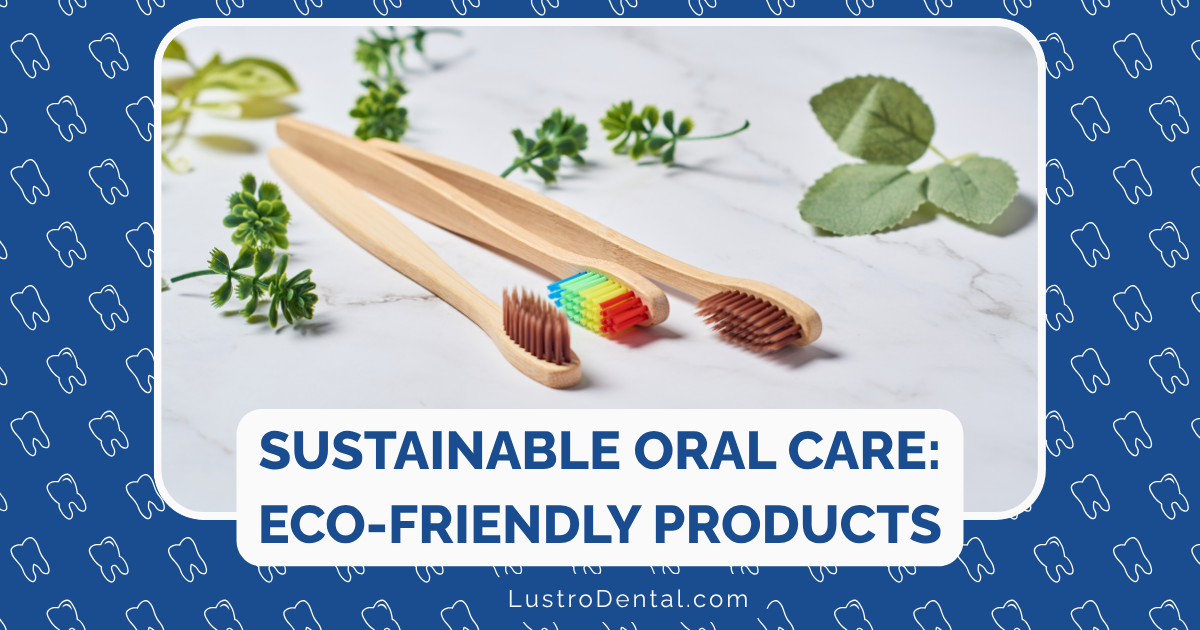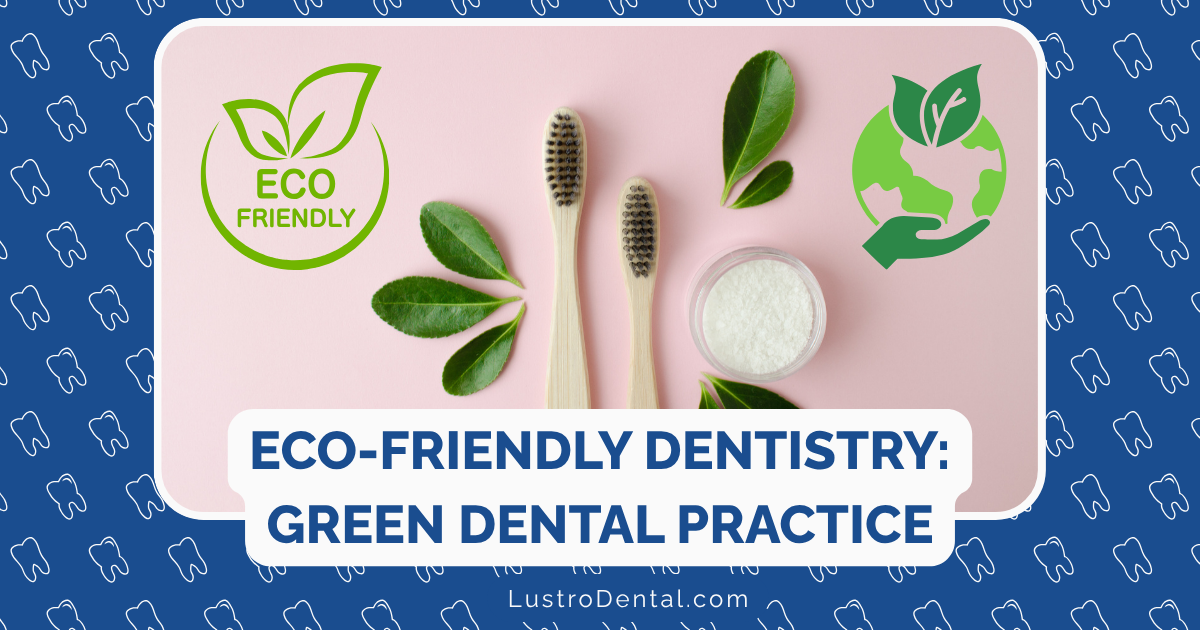Beyond Coconut Oil: Different Oils and Their Dental Benefits
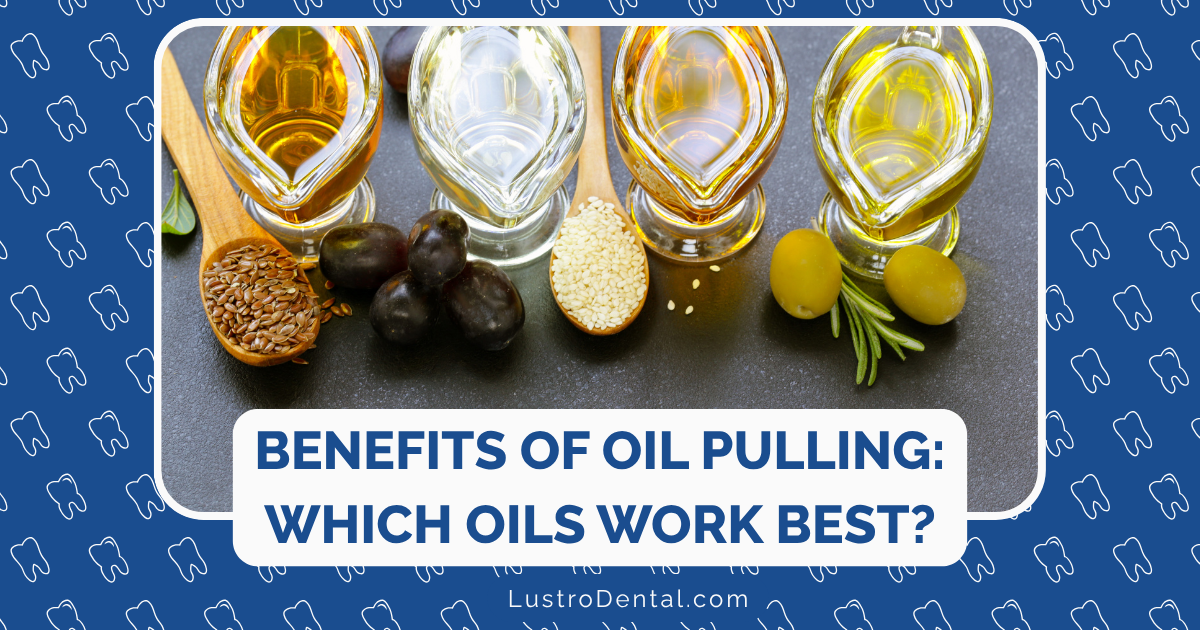
When it comes to natural dental care, coconut oil has dominated the conversation in recent years. Its popularity for oil pulling—the ancient practice of swishing oil in the mouth to improve oral health—has soared, thanks to its pleasant taste and impressive antimicrobial properties. But the world of beneficial oils extends far beyond coconut, with numerous alternatives offering unique advantages for oral health.
As a dental health advocate, I’m excited to explore these lesser-known options with you. In this comprehensive guide, we’ll venture beyond coconut oil to discover the diverse dental benefits of sesame, olive, sunflower, neem, clove, and other oils that deserve a place in your natural oral care routine.
The Science Behind Oil Pulling: A Quick Refresher
Before diving into specific oils, let’s briefly review dental benefits of oil pulling and how it works. This Ayurvedic practice, dating back thousands of years, involves swishing oil in your mouth for 15-20 minutes to “pull” bacteria, toxins, and debris from oral tissues.
Modern research suggests several mechanisms behind its effectiveness:
- Mechanical cleaning: The physical action of swishing helps dislodge bacteria and food particles.
- Saponification: Oils mix with saliva and create a soap-like substance that reduces plaque adhesion.
- Bacterial cell membrane disruption: The lipophilic (fat-loving) nature of oils can break down bacterial cell walls.
- Specific antimicrobial compounds: Each oil contains unique compounds that target harmful oral bacteria.
A 2025 randomized-controlled clinical study published in PMC found that oil pulling with sesame oil resulted in an 18.98% reduction in plaque after eight weeks—significantly better than the 10.49% reduction achieved with distilled water. This confirms that the benefits go beyond just the mechanical action of swishing.
Now, let’s explore the unique properties and benefits of different oils for your dental health.
Sesame Oil: The Traditional Powerhouse
While coconut oil has captured modern attention, sesame oil is actually the traditional choice for oil pulling in Ayurvedic medicine. This golden oil offers several distinct advantages for oral health:
Unique Properties:
- Rich in antioxidants: Contains sesamin, sesamolin, and sesaminol, which combat oxidative stress in the oral cavity.
- High in omega-6 fatty acids: Provides linoleic acid, which has anti-inflammatory properties.
- Natural emulsifier: Creates a soap-like effect when mixed with saliva, enhancing its cleansing action.
- Vitamin E content: Promotes gum tissue health and healing.
Research-Backed Benefits:
The 2025 study mentioned earlier found that sesame oil was particularly effective at reducing plaque on approximal surfaces (between teeth)—areas that are often challenging to clean with regular brushing. After four weeks, sesame oil reduced approximal plaque by 24.07%, compared to just 14.29% with distilled water.
Other studies have shown that sesame oil can:
- Reduce Streptococcus mutans counts (bacteria responsible for tooth decay)
- Decrease gingival inflammation
- Improve halitosis (bad breath)
Dr. Sarah Johnson, a dentist who specializes in integrative oral health, notes: “Sesame oil has a thinner consistency than coconut oil, which may help it reach between teeth more effectively. For patients with tight contacts between teeth or those prone to interproximal cavities, sesame oil can be an excellent choice.”
Olive Oil: Mediterranean Wisdom for Oral Health
Olive oil, a staple of the Mediterranean diet, offers its own set of benefits for dental health. While less commonly used for oil pulling than coconut or sesame oils, its unique properties make it worth considering:
Unique Properties:
- High in oleic acid: A monounsaturated fatty acid with anti-inflammatory properties.
- Rich in polyphenols: Powerful antioxidants that combat oxidative stress.
- Contains oleocanthal: A natural compound with anti-inflammatory effects similar to ibuprofen.
- Squalene content: A natural moisturizer that may benefit dry mouth conditions.
Research-Backed Benefits:
Research on olive oil for dental health has shown promising results:
- A study in the Journal of Indian Society of Periodontology found olive oil effective at reducing plaque and gingival scores.
- Its anti-inflammatory properties may help reduce gingival inflammation.
- The polyphenols in olive oil have demonstrated antimicrobial activity against oral pathogens.
“Olive oil is particularly beneficial for patients with gum inflammation,” explains Dr. Michael Chen, who researches natural dental remedies. “Its anti-inflammatory compounds can help soothe irritated tissues while its antimicrobial properties address the underlying bacterial causes.”
Sunflower Oil: The Vitamin E Advantage
Sunflower oil offers a mild flavor and impressive nutritional profile that makes it another excellent option for oil pulling:
Unique Properties:
- Exceptionally high in vitamin E: A powerful antioxidant that protects gum tissue.
- Contains linoleic acid: Helps reduce inflammation in the oral cavity.
- Light texture and mild flavor: Often better tolerated by those who find coconut or sesame oil too strong.
- Rich in omega-6 fatty acids: Supports cellular health and tissue repair.
Research-Backed Benefits:
While less studied than coconut and sesame oils, research on sunflower oil shows:
- Effectiveness in reducing plaque-induced gingivitis
- Ability to decrease bacterial adherence to tooth surfaces
- Potential to improve gingival health through its anti-inflammatory properties
“Sunflower oil is an excellent option for patients who don’t enjoy the taste of coconut or sesame oil,” notes dental hygienist Emily Thompson. “Its light flavor makes it more palatable, which can improve compliance with the oil pulling routine.”
Neem Oil: Ancient Antimicrobial Marvel
Neem has been used in Ayurvedic medicine for thousands of years, earning the nickname “the village pharmacy” for its diverse medicinal properties. For dental health, neem oil offers powerful benefits:
Unique Properties:
- Contains nimbidin and nimbin: Compounds with potent antibacterial and anti-inflammatory properties.
- Rich in antioxidants: Helps neutralize free radicals that contribute to gum disease.
- Natural astringent properties: May help tighten gum tissue.
- Bitter taste: While not palatable on its own, can be effective in small amounts mixed with carrier oils.
Research-Backed Benefits:
Research published in the Journal of Clinical and Diagnostic Research found that neem-based products effectively:
- Reduce plaque formation
- Decrease the population of cariogenic bacteria
- Lower the incidence of gingivitis
- Prevent the adhesion of bacteria to tooth surfaces
Dr. Lisa Williams, who specializes in botanical dental applications, suggests: “Rather than using neem oil alone for pulling, consider adding a few drops to sesame or coconut oil. This gives you the antimicrobial benefits of neem without the overwhelming bitterness.”
Clove Oil: The Dental Pain Reliever
Clove oil has been used for centuries to address toothaches, but its benefits extend far beyond pain relief:
Unique Properties:
- High eugenol content: A natural anesthetic and antimicrobial compound.
- Contains caryophyllene: An anti-inflammatory compound that may reduce gum inflammation.
- Powerful antioxidant capacity: Helps combat oxidative stress in the oral cavity.
- Strong flavor and sensation: Creates a warming, numbing effect.
Research-Backed Benefits:
Studies published in the Journal of Dentistry have shown that clove oil can:
- Significantly reduce oral pathogens, including those responsible for periodontal disease
- Provide analgesic effects for dental pain
- Inhibit the growth of Streptococcus mutans, reducing cavity risk
- Decrease inflammatory markers in gingival tissue
“Clove oil is extremely potent and should be used sparingly,” cautions Dr. Robert Johnson, a holistic dentist. “I recommend adding just 1-2 drops to a tablespoon of carrier oil like sesame or coconut for oil pulling. This provides the antimicrobial benefits without irritating the oral tissues.”
Argan Oil: Moroccan Treasure for Oral Health
While primarily known for its benefits to hair and skin, argan oil has properties that make it valuable for oral health as well:
Unique Properties:
- Rich in vitamin E: Contains higher levels than olive oil, providing antioxidant protection.
- Contains squalene: A natural emollient that may help with dry mouth conditions.
- High in phenolic compounds: Offers antimicrobial and anti-inflammatory benefits.
- Smooth texture and mild flavor: Makes it pleasant for oil pulling.
Research-Backed Benefits:
Though research specifically on argan oil for dental applications is limited, studies on its compounds suggest:
- Anti-inflammatory effects that may benefit gingival health
- Antimicrobial properties against common oral pathogens
- Potential to reduce oxidative stress in oral tissues
“Argan oil is worth considering for patients with dry mouth or those who need gentle care for sensitive gums,” suggests Dr. Williams. “Its moisturizing properties and mild antimicrobial action make it suitable for those who might find other oils too harsh.”
Combining Oils: Creating Synergistic Blends
While each oil offers unique benefits, combining them can create synergistic effects that enhance their overall impact on oral health. Here are some effective combinations to consider:
Sesame + Coconut Blend (3:1 ratio)
- Benefits: Combines the approximal plaque-fighting ability of sesame oil with the strong antimicrobial properties of coconut oil.
- Best for: Comprehensive plaque control and cavity prevention.
Sesame + Few Drops of Clove
- Benefits: Adds pain-relieving and enhanced antimicrobial properties to the traditional pulling oil.
- Best for: Those with sensitive teeth or mild gum inflammation.
Coconut + Few Drops of Neem
- Benefits: Enhances the antimicrobial action with neem’s powerful bacteria-fighting compounds.
- Best for: Active gum disease or persistent bad breath.
Sunflower + Olive Blend (1:1 ratio)
- Benefits: Creates an antioxidant-rich combination with excellent anti-inflammatory properties.
- Best for: Inflamed gums and general oral health maintenance.
“When creating blends, start with small amounts and adjust based on your tolerance and preferences,” advises Dr. Johnson. “The goal is to create a combination that you’ll use consistently, as the benefits of oil pulling come with regular practice.”
Practical Recommendations: Choosing the Right Oil for Your Needs
With so many options available, how do you choose the right oil for your specific dental concerns? Here’s a simplified guide:
For Cavity Prevention:
- Primary recommendation: Coconut oil (high lauric acid content)
- Alternative: Sesame oil + few drops of neem oil
For Gum Inflammation/Gingivitis:
- Primary recommendation: Sesame oil or olive oil
- Alternative: Sunflower oil + few drops of clove oil
For Bad Breath:
- Primary recommendation: Coconut oil + few drops of neem
- Alternative: Sesame oil with a drop of peppermint essential oil
For Sensitive Teeth:
- Primary recommendation: Sesame oil + drop of clove oil
- Alternative: Argan oil (gentle option)
For Dry Mouth:
- Primary recommendation: Argan oil or olive oil
- Alternative: Sunflower oil
“Listen to your body when trying different oils,” suggests dental hygienist Thompson. “The oil that feels most comfortable and leaves your mouth feeling cleanest is often the best choice for long-term use.”
The Bottom Line: Integrating Oil Pulling Into Your Routine
While the American Dental Association does not currently recommend oil pulling as a replacement for conventional oral hygiene practices due to limited clinical evidence, many dental professionals recognize its potential benefits as a complementary approach.
To integrate oil pulling with different oils into your routine:
- Start with a small amount: Begin with just a teaspoon of your chosen oil and work up to a tablespoon as you become comfortable.
- Be consistent but realistic: Daily oil pulling for 15-20 minutes is ideal, but even 3-4 times per week for 5-10 minutes can provide benefits.
- Time it right: Morning on an empty stomach is traditional, but any consistent time works.
- Maintain conventional care: Continue brushing, flossing, and regular dental check-ups.
- Experiment thoughtfully: Try different oils to find what works best for your specific needs and preferences.
Remember that individual responses vary, and what works wonderfully for one person may not be as effective for another. The best oil for you is ultimately the one that you’ll use consistently as part of your oral health routine.
By exploring options beyond coconut oil, you may discover that another oil—or a carefully crafted blend—provides even greater benefits for your unique dental health needs. The ancient wisdom of oil pulling, combined with our modern understanding of different oils’ properties, offers a natural complement to conventional dental care that’s worth exploring.
Have you tried oil pulling with oils other than coconut? What was your experience like? Share your thoughts in the comments below.


